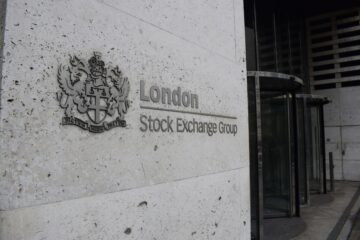Introduction
Vivendi, the French media conglomerate, has reached an agreement to buy activist investor Amber Capital’s 17.9% stake in Lagardère, the French media and retail group. The takeover of Lagardère, owner of the Paris Match magazine and Europe 1 radio, would see the creation of one of Europe’s biggest media companies. If approved, Vivendi would hold 45% of Lagardère’s share capital and 36% of the voting rights. Vivendi has agreed to pay €24.1 per Lagardere’s share or around €610 mm. It will later launch a full takeover bid for the company at the same price, once it has surpassed the 30% threshold mandating companies to make a takeover offer according to French law. It is aiming for December 2022 at the latest. However, any subsequent takeover will have to undergo significant scrutiny by antitrust authorities in France and the EU. This is because Vivendi, like Lagardère, also has an established publishing business. If the deal goes through, it will signify the end of what was once an industrial behemoth of France, which under its late founder Jean-Luc Lagardère had helped contribute to the creation of companies like Airbus.
Vivendi
Vivendi is a French media conglomerate with over 44,000 employees headquartered in Paris, France. Vivendi traces its roots to a water company under the name Compagnie Générale des Eaux (CGE) in 1853. In 1983 CGE helped to establish the first pay-TV channel in France, Canal+. Following expansions into telecommunications and mass media, the firm changed its name to Vivendi in 1998.
The firm can be divided into two broader divisions: Canal+ Group accounting for 51% of revenue, and Universal Music Group which accounted for 47% of revenue. The company recently posted revenues of €8.2bn for the first half of 2021, up 11.9% compared to 2020 and a net income of €724mm, up 24.1% compared to the same period in 2020. Other business endeavours include its minority stakes in telecom giants such as Telecom Italia and Telefonica.
Vivendi is most widely known as the owner of the world’s biggest music label, Universal Music Group. Vivendi has sold one-third of Universal since 2019. Initially selling a 20% stake to a Tencent-led consortium at a €30bn valuation in 2019 and following this up by selling a 10% stake to Pershing Square at a €35bn valuation this year. This week Vivendi will hand off 60% of Universal in a listing on the Euronext Amsterdam Exchange to its shareholders in what is known as a distribution in kind. Following this move, Vivendi will only own 10% of UMG. The spin-off will undoubtedly allow Vivendi to narrow its focus to legacy media in Europe. Universal music group previously accounted for up to 73% of the company’s operating profit of €1.5bn in 2019.
Lagardère Group
Established in 1992, Lagardère is a French-based company operating in more than 40 countries worldwide, predominantly in the publishing industry. The company recently undertook a strategic shift and selected to prioritise two main divisions: Lagardère Publishing and Lagardère Travel Retail. Lagardère Publishing is the leading book publisher in France and its main focus is the Hachette Publishing house. The company’s Travel Retail branch is the world’s fifth-largest travel retail merchant, owning various brands such as Relay, Aelia Duty-Free and Vino Volo.
Lagardère Group was once seen as one of France’s national industrial giants – contributing to the creation of the aerospace group Airbus. However, the current CEO, Arnaud Lagardère, has received immense criticism for his controversial management style and the poor performance of the company since taking over from his father in 2003. As well as selling off many parts of the group, Arnaud Lagardère only recently consented to dismantle the société en commandite structure that ensured his tight control over the business despite only holding a 7% stake. As such, when Lagardère converted to a normal société anonyme – this left him powerless to stop a takeover bid.
The Lagardère Group reported revenue of €439mm in 2020, down 38% from the previous year. It posted a net loss of €660mm, compared with a €15mm loss last year. Furthermore, the company’s share price has substantially underperformed, and this has been accompanied by rising restructuring and management costs.
Industry Overview
The media and entertainment industry consists of various sub-sectors including, but not limited to, advertising, broadcasting & cable TV, publishing, and movies & entertainment. The European media industry is the second largest in the world – trailing only the US. It recorded total revenues of $275 bn in 2018, representing a compound annual growth rate (CAGR) of 1.3% between 2014 and 2018. The advertising segment, in particular online advertising (+9.4% year-on-year), was the industry’s most lucrative, with total revenues of $116 bn, equivalent to 42.3% of the industry’s overall value.
According to PwC, the industry is expected to grow by 6.5% in 2021 and 6.7% in 2022, powered by sustained demand in digital content and advertising. The migration of media users to online channels results from an increased smartphone and social media usage, which funnelled advertising spend into digital media. The pandemic not only slowed the industry growth last year but also accelerated the trends that were already shaping the market, such as box office revenues shifting to streaming platforms and content moving to mobile devices. Growth and changes in the media and entertainment industry will continue to be driven by the digitization of content and ongoing innovations in technology.
Media
The European media sector can be broken down into three main segments – TV, radio, and the internet. Despite profound changes in how consumers use TV products, television has never been more popular, as 80% of Europeans watch TV daily, with countries in Southern Europe watching the most on the continent. Similarly, three out of ten Europeans listen to the radio daily, with the biggest market being Northern Europe. Internet too is used by seven or eight out of ten Europeans daily, with usage being the highest in the Nordic countries and Northern Europe.
Publishing
While often overlooked, the publishing market is a sizeable part of the European economy, comprising traditional print media (i.e., books, magazines, and other periodicals) and printing (i.e., physical production of media). The publishing sector is valued at around €60bn in annual revenues, which is equivalent to 1% of the non-financial business economy total. Currently, there are slightly less than 100,000 companies operating in this sector, employing over 900,000 people. Except for a few major players, 95% of European printing companies and publishing houses are small to medium enterprises, employing less than 20 people.
Deal Structure
Vivendi agreed to pay €24.1 per share for activist investor Amber Capital’s 17.9% stake in Lagardère (25.3 million shares), which will add to the 27% it already owned. The transaction amounts to €610mm ($720mm) or a 24% premium to the current share price. Upon completion of the regulatory review, expected by December 2022, Vivendi will hold 45% of the shares and 36% of the voting rights. A full bid to remaining shareholders will later be launched at the same price once Vivendi has passed the 30% threshold requiring companies in France to make a takeover offer. That would value Lagardère at around €3.4 bn, compared to its €2.7bn market capitalization as of September 15th, implying a multiple of 47.2x based on TTM EBITDA as of Jun-21 (€72mm), or 11.3x based on estimated EBITDA for FY 2021 (€302mm). At only €2 per share above Lagardère’s five-year average share price, the offer is hardly generous, considering that major equity research firms, such as Kepler Cheuvreux, put the fair value of Lagardère at €27 per share excluding a takeover premium.
Deal Rationale
The move comes as Vivendi prepares to list Universal Media Group, its most profitable business, as well as the largest music group in the world, on the Amsterdam stock exchange on the 21st of September.
When the company’s president Arnaud Lagardère, who inherited the illustrious banner from his father, Jean-Luc Lagardere, clashed with Amber Capital and was threatened with being pushed aside, Vivendi, which owned a 29-per cent stake before the pending deal, first entered Lagardere with a 10.6 per cent stake in April 2020. A commandite corporate structure enabled Arnaud to maintain effective control over the business despite a tiny, 7% stake.
In April, a deal to disband the commandite allowed Lagardère another five years as CEO. However, it also signalled the possibility of a takeover. Bernard Arnault, the creator of LVMH, converted a stake in Lagardère’s holding company into public shares, implying that he no longer supports the status quo.
Deal’s Aftermath
If successful, the acquisition of Lagardere will bring an end to what was once one of France’s national industrial champions. At its height, it invested in multiple firms including Airbus, the global aviation behemoth. The management of Lagardere and its CEO, Arnaud Lagardere, has sold off pieces of the company one by one. When he was trying to fight off an activist effort by Amber last year, he welcomed investors, including Vivendi and luxury goods mogul, Bernard Arnault.
This deal may take months to conclude to match with the regulation and gain the approval of the European Union. The French media conglomerate Vivendi has announced that the deal is aiming for December 2022 at the latest. If not, “the acquisition will have to be completed at the same price by a third party in place of Vivendi.” There is also an antitrust problem that would be overcome in any subsequent takeover since Vivendi also has a publishing business.
LVMH’s CEO, Bernard Arnault, previously involved in matters regarding Lagardere, has stopped in his pursuit of the company. After originally investing in his holding company, he currently owns an 11 per cent share in Lagardere and has severed financial links with the firm’s heir and CEO, Arnaud Lagardere. After the firm eliminated an esoteric partnership structure, Amber Capital conducted an aggressive campaign against Lagardere, succeeding in the governance overhaul it desired. In the meantime, Lagarder’s offices in Paris are under judicial investigation thanks to past disputes with shareholders, including Amber.



0 Comments